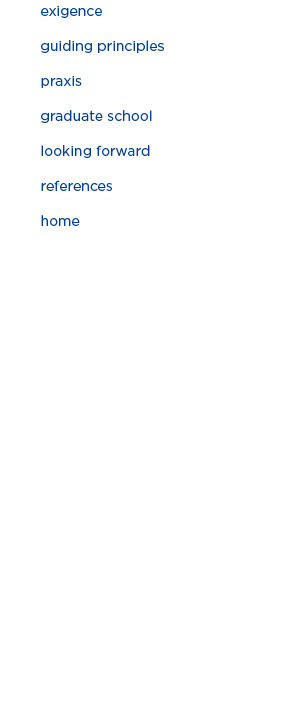 |
|
 |
ExigenceAs a teacher-scholar specializing in digital rhetorics, I have been trained to conduct research and teach in digitally-mediated spaces. In graduate school, my decision to make technology a central aspect of my research agenda and pedagogy was supported with more resources than I could ever need or use. Looking toward the job market during those years, I considered whether my commitment to researching digital spaces and teaching with technology would serve as assets to a potential employer. I rarely, however, thought beyond the stage of securing a job. It never occurred to me, for example, how my integration of digital technologies in my pedagogy might position me in an institution that did not have the same material resources as my graduate program. During the summer before I started my first tenure track position, the realization finally occurred to me that being a specialist in digital composition carries with it a commitment to enacting a digital pedagogy within various institutional constraints--infrastructure, material resources, ideological systems—that are always contingent, fluid, evolving. instead of viewing these constraints as limits on our pedagogical commitments, however, we must allow our pedagogy to evolve within this new environment, all the while never compromising our core beliefs about the importance of computers to writing. In this article I want to complicate the binary of "technologically-rich" and "technologically-lacking" departments/campuses/classrooms: a binary that I fully bought into and perpetuated as a graduate student and now want to challenge as a faculty member. From a material resources perspective, it is easy to articulate the difference between a classroom that is filled with 25 high-end computers—all loaded with software for creating video, editing images, crafting websites—and a classroom that contains a whiteboard and marker. But we instructors often find ourselves in spaces somewhere in between. As technorhetoricians—people who view technologies as being endemic to the study and practice of rhetoric—we need to be a model for how teachers can still "do" digital rhetorics in a range of classroom environments. As someone who regularly teaches graduate and undergraduate courses such as Digital Writing, and whose research agenda explores the intersection of digital and civic rhetorics, I am committed to teaching my students how to use and critique technologies in rhetorically savvy ways. That said, my first year as a faculty member has encouraged me to rethink how I use technologies and to what end. And this is the story I want to tell. In this article, I address considerations for faculty members (particularly newly-minted Ph.D.s) moving into a new technological ecology. I draw the term "ecology" from Dànielle DeVoss, Heidi McKee, and Richard Selfe (2009) who argued that ecologies represent "environments in which composition teachers and students learn, study, and communicate. These environments—which include both human and technological actors—are akin, as many scholars have suggested, to ecological systems (Davison, 2001; Latour, 2004; Nardi & O'Day, 2000; Selfe & Hawisher, 2004) and deserve to be studied in all their layered, interconnected complexity" (Introduction, p. 1). These ecological systems include both human and non-human actants (Latour, 2005): hardware, software, instructors, administrators, students, servers, wireless access, and institutional practices, to name a few. The ecology of any given technological location encompasses not only the relationship between these actants, but also the fact that relationships constantly shift and adapt. I choose the term "ecology" to emphasize that while I am presenting a snapshot of technological conditions at a particular moment in time, those conditions have most likely changed (to a greater or lesser extent) since this writing and will yield results none of us can fully predict. With these contingent conditions in mind, in this article I consider: (1) How we as instructors might push against the unhelpful binary of technological "richness/lack," constructing strategies for maintaining our commitments to digital pedagogies within a particular set of institutional conditions. (2) How we as graduate students might better prepare for the transition to the professorship at locations that may not technologically resemble our graduate institutions. To explore these questions, I offer two vignettes (above) from my first year as an assistant professor. These vignettes detail two moments that I initially interpreted as technological frustration. In retrospect, however, I read these moments as being more generative than that: times when I was forced to reconsider what it means to adjust to a new technological ecology. |